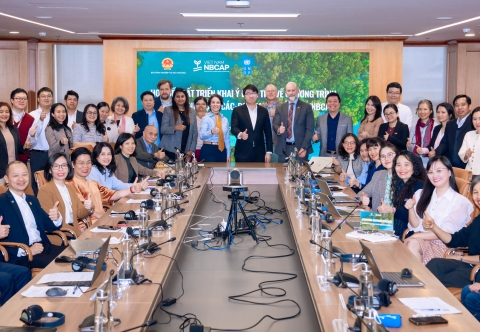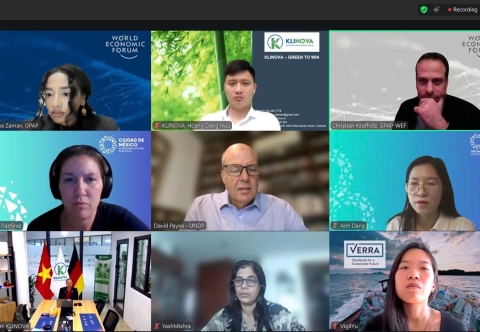On July 15, 2025, in Hanoi, the Vietnam Forest Owners Association (VIFORA), in collaboration with Forest Trends, held a consultation workshop on the Draft Decree regulating forest carbon sequestration and storage services. This legal document is expected to lay the groundwork for establishing and operating a forest carbon credit market in Vietnam - one of the key pillars in achieving the country’s commitment to net-zero emissions by 2050.
The Draft Decree builds upon existing legal frameworks on greenhouse gas (GHG) mitigation, particularly Decree 06/2022/NĐ-CP and its amendment under Decree 119/2025/NĐ-CP. According to government representatives, once issued, the Decree will help remove current legal barriers, enabling forest owners - especially businesses and local communities - to actively engage in carbon credit transactions both domestically and internationally.
Notably, the Draft proposes a dual-market mechanism: a service-based model with government-regulated pricing, similar to current payment for forest environmental services, and a market-based model that allows free trading based on supply and demand. Experts, however, stressed the importance of clearly distinguishing between the two to avoid conflicts over pricing and benefits. There were also suggestions to replace the term “greenhouse gases” with “forest carbon” to better reflect the nature of CO₂ absorption and storage services provided by forest ecosystems.
Carbon credit ownership - one of the most pressing legal issues - was also discussed. Several participants called for clear legal provisions to prevent conflicts between landowners and project investors. In cases where planted forests are self-financed by households, carbon credits should be treated as private assets with full rights to trade. The Draft also proposes benefit-sharing principles based on contribution levels and ownership rights, aimed at encouraging partnerships between households and businesses.
In parallel, the emerging domestic forest carbon market presents opportunities for businesses to offset emissions at relatively low costs while generating social value. After fulfilling financial obligations, companies will be entitled to retain all proceeds from credit sales, which can be legally accounted for under existing financial regulations. To participate, however, they must meet strict requirements for measurement, reporting, and verification (MRV), as well as complete legal documentation on forest land use rights.
The Draft also introduces national standards for forest carbon credits, while recognizing internationally certified credits such as those under the LEAF and FCPF programs. Credit pricing will be guided by the Ministry of Agriculture and Environment, with provincial People’s Committees setting local price frameworks, subject to adjustment through negotiation or auction. Provinces with plantation forests adjacent to project areas are encouraged to integrate and share benefits with participating households to expand the scope of implementation.
Concluding the workshop, experts agreed that the legal framework must ensure three core principles: transparency, feasibility, and equitable benefit-sharing, in order to foster a sustainable forest carbon market. The adoption of this Decree will help operationalize Vietnam’s international commitments, promote green economic transformation, and strengthen the sustainable management of natural resources.
KLINOVA was honored to participate in the workshop, reaffirming our commitment to supporting institutional development and the growth of a fair and effective forest carbon market in Vietnam.
 Meeting to propose the implementation of the Letter of Intent for the National Green Carbon Action Partnership Program (NBCAP)
Meeting to propose the implementation of the Letter of Intent for the National Green Carbon Action Partnership Program (NBCAP)
 Online Workshop on the Financing Roadmap for Plastic Action to 2030: Mobilizing USD 8.5 Billion for Viet Nam’s Circular Economy
Online Workshop on the Financing Roadmap for Plastic Action to 2030: Mobilizing USD 8.5 Billion for Viet Nam’s Circular Economy